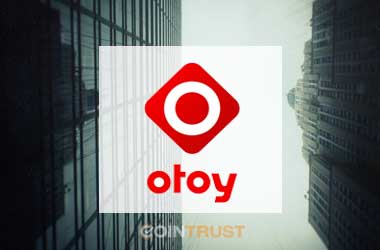
The P2P network offered by the RNDR platform enables content creators to easily crowdsource the power of graphics cards. The system is based on a patent received by OTOY in 2009 for a “token-based billing model for server-side rendering.”
The technology adopted by RNDR has made it possible to scale the rendering speed, while simplifying the process of rendering and streaming 3D environments, objects, and models.
Commenting on the blockchain platform, Jules Urbach, CEO of OTOY said,
“The concept for RNDR has been in the works for some time and the reaction we’ve seen so far is highly encouraging. We’re now in an excellent position to deliver on our mission of democratizing the process of complex rendering.”
In order to achieve scalability the OTOY team has entered into a partnership with ZeppelinOS. Both RNDR and Zeppelin will work together to provide an on-chain smart contract library that developers can call to provide standard and common functions in their applications. In addition to this, the Zeppelin OS SDK will assist in the development, testing, and deployment of RNDR’s decentralized apps. This partnership is a crucial element in the scaling of the RNDR network and its potential to perform an ever-growing number of transactions.
Regarding the partnership, Demian Brener, Zeppelin CEO, said,
“We are proud to partner with RNDR to achieve our mission of creating the next generation of smart contract infrastructure. We look forward to collaborating with them to usher in a new era for smart contract security with ZeppelinOS.”
Additionally, RNDR has also entered into partnership with Decentraland (MANA), a virtual reality project. RNDR will make the process of rendering and streaming intricate virtual works easier for all users by allowing complex GPU-based render jobs to be distributed and processed on a peer-to-peer network. RNDR’s partnership with Decentraland will see RNDR working directly with the public VR blockchain’s user base to provide them with access to RNDR’s network of GPUs that can power the creation of assets on the Decentraland platform. Decentraland co-founder Ari Meilich also serves on RNDR’s advisory board.
Urbach added
“Working with these two renowned blockchain companies is valuable in our move towards creating an extensive, distributed network of idle GPU computing power. Both Zeppelin and Decentraland are experienced players in the blockchain space and we are confident that these partnerships will provide us with access to even more users as our network scales.”
Decentraland co-founder Ari Meilich said,
“I chose to join RNDR’s advisory board because they share my mission of creating an open, decentralized Metaverse. We hope that, with the launch of their platform, Decentraland content creators will be able to rent GPU power in a P2P network. RNDR has the potential to increase the pool of GPUs available by 3 to 4 orders of magnitude, compared to the public cloud.”
RNDR’s team and advisory board is comprised of notable players such as Hollywood director and producer J.J. Abrams, founder of Brave and Basic Attention Token Brendan Eich, and famed talent agent Ari Emanuel.
About OTOY
OTOY was founded in 2009 with the vision to provide GPU-based software solutions that aid in the creation and delivery of cutting-edge digital content such as video games and movies. OTOY’s OctaneRender is the world’s first and fastest GPU-accelerated, physically correct renderer.
About Zeppelin OS
ZeppelinOS is an open-source, distributed platform of tools and services on top of the EVM (Ethereum Virtual Machine) to develop and manage smart contract applications securely. The platform is maintained and governed by a community where everything will be on chain, including upgradeable contracts, a governance platform, scaling solutions and more.
About Decentraland
Decentraland is a virtual reality platform powered by the Ethereum blockchain. Users can create, experience, and monetize content and applications.
